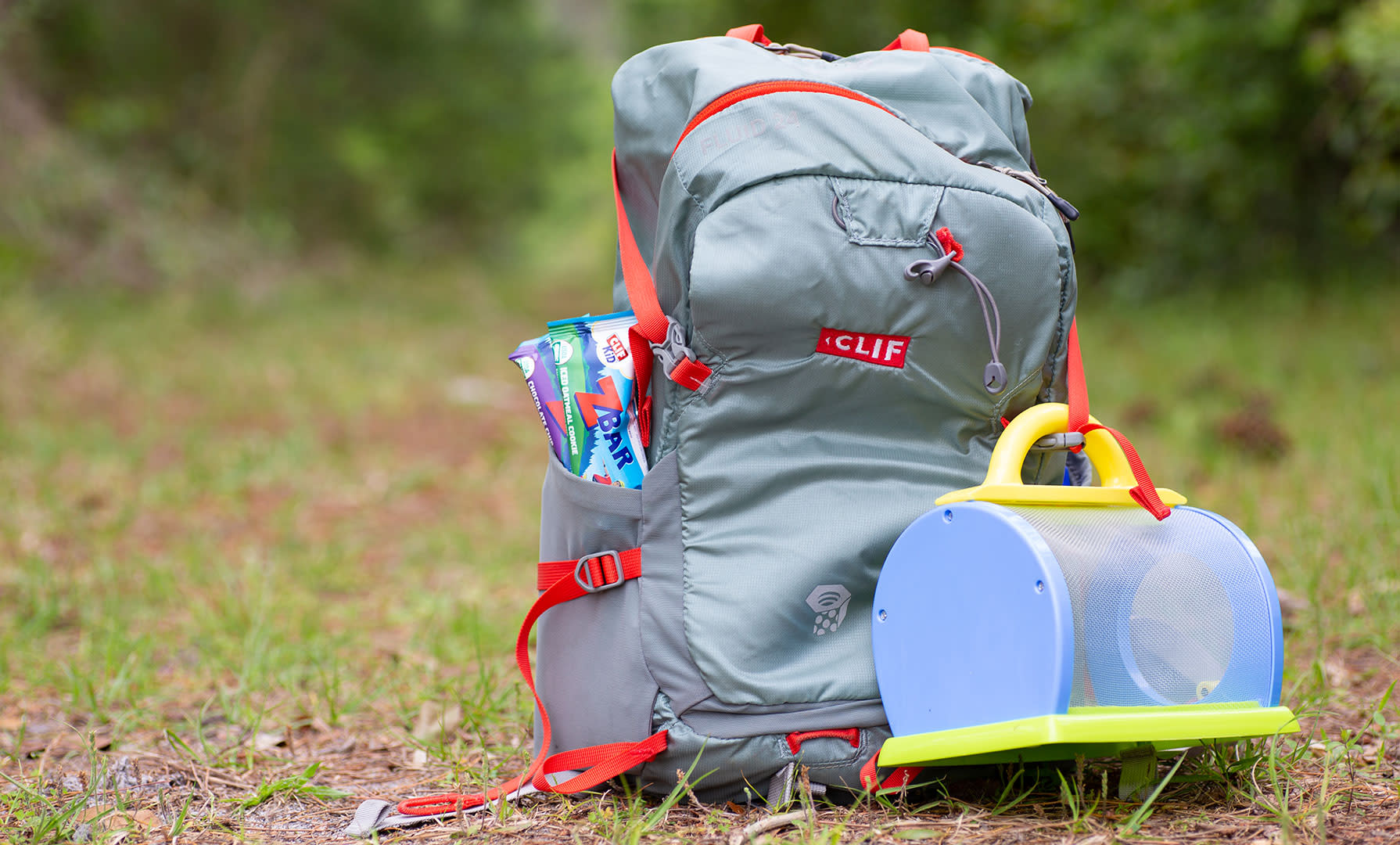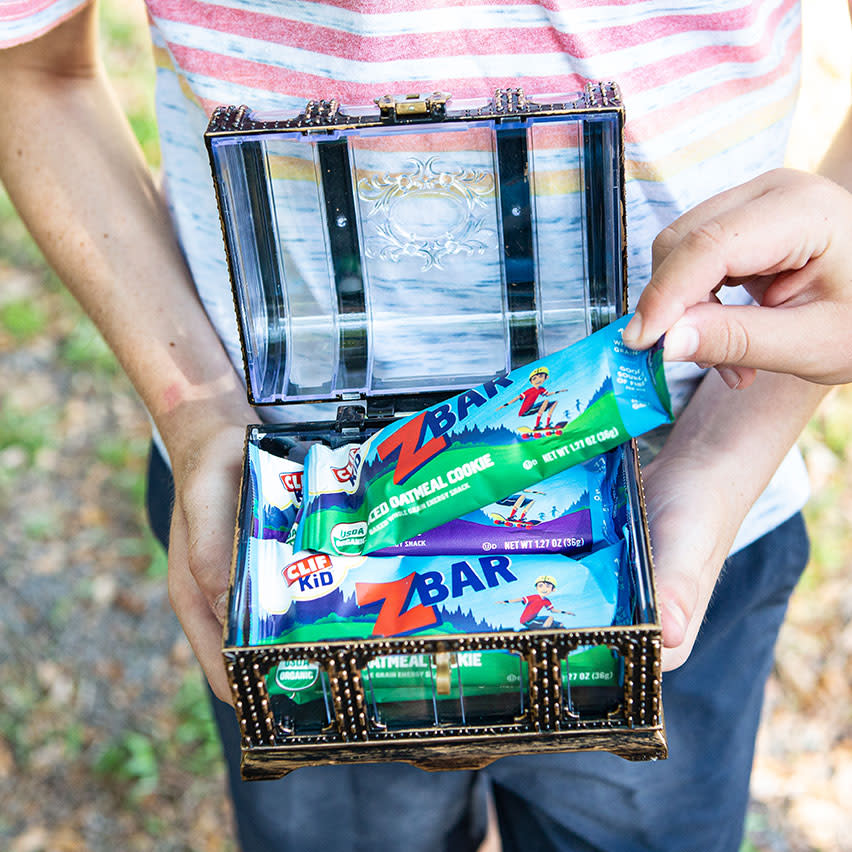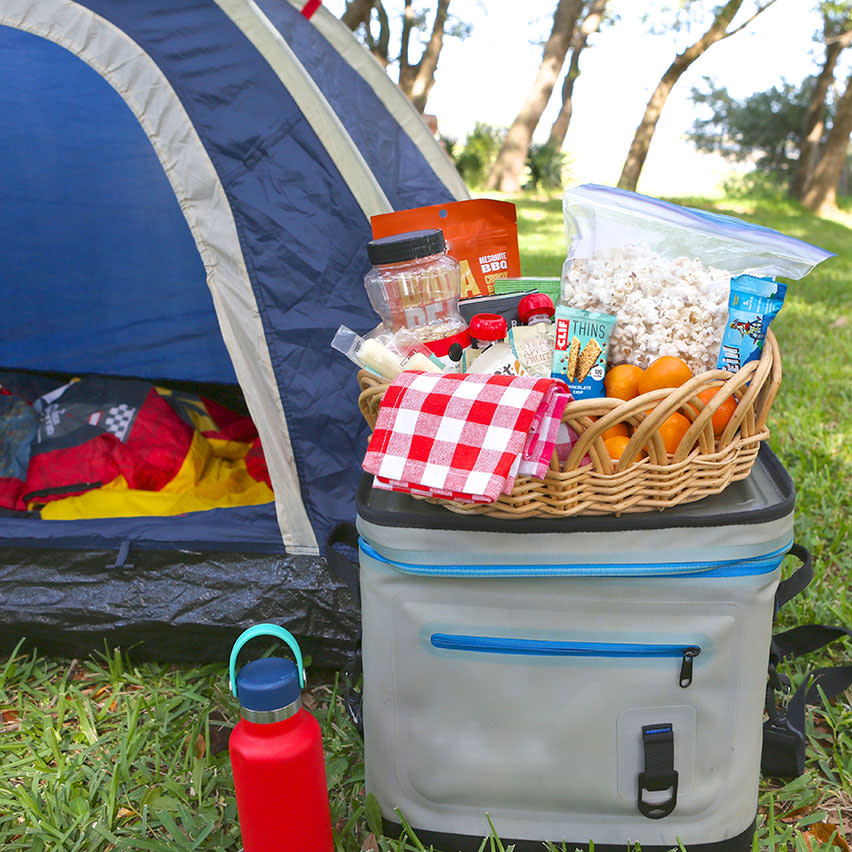The ideas and suggestions written below are provided for general educational purposes only and should not be construed as medical advice or care. Always seek the advice of a physician or other qualified health provider before beginning any physical fitness or health- and nutrition-related activity.
Camping offers an incredible opportunity for families to slow down, enjoy nature, and experience an adventure together. Beyond just the promise of having fun, a review of nearly 150 studies in Environmental Research found that time in nature offers several health benefits, such as decreased risk for type II diabetes and increased self-reported good health.
Planning a family camping trip might feel daunting, especially if you’re not a seasoned camper. The beauty of camping, though, is that there is a wide spectrum of ways to camp that fit any family’s needs or desires.
Here are some tips to help you get started with confidence.
Tips for First-Time Campers
Start small and close by. There’s no shame in beginning your camping quest in your own backyard. It’s a great way to get littles used to sleeping outside but still have amenities close by. A DNF (did not finish) simply means you slip into your own beds with no harm done and no money wasted. When you’re ready to take it up a notch, look for a local campsite and plan a single night out. Think of camping with a long-game mentality; you’ll get a little better at it every time you try.
Borrow, rent , or buy used equipment. There’s no sense investing in camping gear without knowing what your family will actually like using. You can also look at social media marketplace postings to find gently used camping gear.
Camping is not all or nothing. Some people think of camping as totally roughing it in nature without access to any creature comforts, but that may not appeal to you. Camping can be any blend of outdoor adventure and modern travel that you desire, whether that’s a rugged tent, RV, or cabin. (Glamping is absolutely a thing and certainly counts.)
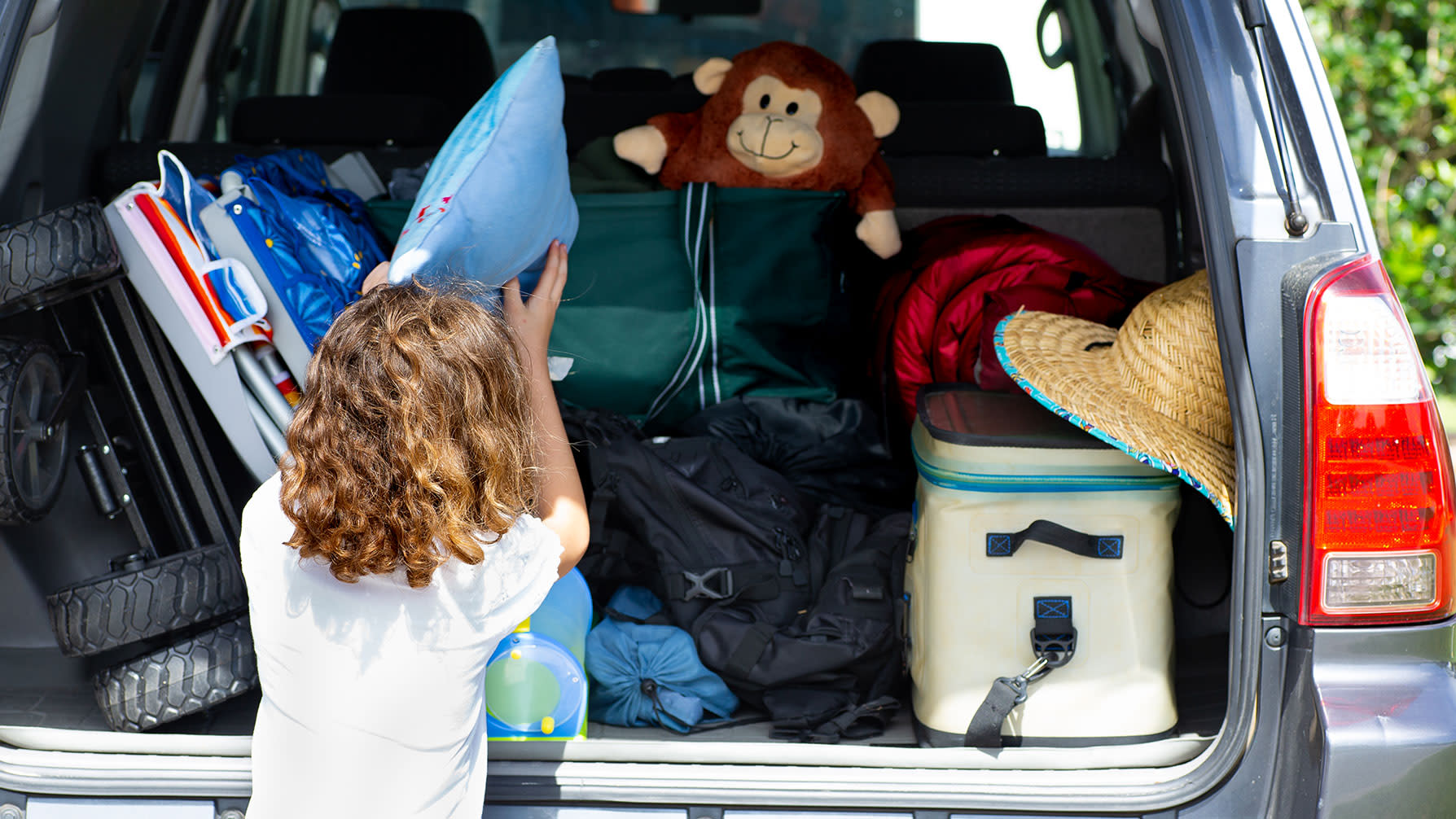
Camping With Kids Essentials Checklist
One of a parent’s worst nightmares is to embark on a camping trip only to remember that something very important has been forgotten. Have no fear! We have put together an essential checklist of camping gear for a smooth camping trip with kids.
Campsite Gear
Collapsible sink. These sinks are made of silicone and easily fold up when not in use. You’ll find it useful for doing dishes and storing water for any task.
Lots of bags. Bring paper or recyclable plastic bags to easily consolidate trash and ensure campsites are left in the same state or better than when you arrived.
A very good coffee maker. No parent should embark on a family camping trip without this important detail worked out. There are many good options for making coffee outdoors, so find what works for your setup and practice using it at home first.
Tent fan. Multiple people sleeping in tight quarters can increase the temperature quickly. A tent fan or personal fans can help keep everyone comfortable.
Rain fly or tarps. Prepare for rain even if it’s not in the forecast. A rain fly often comes with your tent and enables them to be waterproof but if it’s not included, a good sturdy tarp and rope can also provide a covering for sleeping and eating areas.
Light sources. Lanterns, flashlights, and solar-powered string lights are a necessity for nighttime. Bring more than you think you’ll need because flashlights are easy to misplace.
Ropes and carabiners. Extra ropes and fasteners can come in handy from hanging wet towels to keeping water bottles or garbage off the ground.
Mess kits. Mess kits are an all-in-one dishware set to eat from. They typically include a plate, bowl, silverware, and cup. Be sure every family member has their own.
Camping Clothes and Personal Items
Water-friendly closed-toe shoes. Shoes that are made for walking and getting wet are very helpful while camping. Look for shoes that are sneaker-like but made of waterproof materials that easily drain water.
Sun hats for every family member. Even if the forecast is cloudy, wide-brimmed hats will help prevent sunburn and keep the sun out of everyone’s eyes.
Bug spray and sunblock. If you are camping in an unfamiliar area, it might be helpful to look up what type of insects are common there. This will help you bring the best type of bug protection. Wear sunblock daily because you’ll likely be in the sun more than usual.
Baby wipes. Wet wipes are useful for keeping hands and faces clean.
Portable white noise machine. This machine can help everyone sleep soundly and not get woken up by every forest noise or snorer.
Extra socks. Plan on your kids’ feet getting wet more often than you think.
Head lamps. These hands-free flashlights are ideal for parents and kids to use while exploring at night, walking to the bathroom, or reading in bed.
Fast-drying towels. Towels get used a lot while camping! While it’s tempting to want your plush towels from home, they take a long time to dry. Bring a quick drying towel for each person that will dry lickety split!
Your kids’ favorite sleeping items. Do not forget your child’s favorite stuffed animal or special blanket.

Camping Snacks for Kids
It’s always a good idea to overpack on snacks when camping with kids. You never know when hunger will strike, and you certainly don’t want it ruining a good time. Choose snacks that have beneficial ingredients (like fiber, protein, and whole grains) and are portable and shelf-stable to give family members the energy they need.
Single-serving trail mixes. Trail mix now comes in a plethora of flavors that makes it easy for every family member to choose one they like. Buy pre-portioned packets or make your own snack bags at home to make it super easy to take with you in a pocket or backpack while exploring nature.
CLIF Kid Zbar®. These organic energy snack bars are the perfect snack to keep kids going through all your camping adventures. With energizing whole grains from organic oats, kids will love that it’s a soft baked texture in a variety of flavors like Chocolate Chip, Iced Oatmeal Cookie and Chocolate Brownie and you’ll love that they come with no high fructose corn syrup or artificial flavors.
CLIF Kid Zbar® Protein. When hunger strikes, you need a delicious snack that satisfies. CLIF Kid Zbar Protein is a crispy, gluten-free snack bar made with organic oats that helps tame appetites. Keep them stocked at your campsite in delicious flavors like Cookies ‘n Creme, Chocolate Chip, and Chocolate Mint.
Mandarin oranges. This delicious fruit is ideal for camping because it pulls double duty by providing fiber and a source of hydration. It’s very portable and easy to peel, making it ideal for taking on the go.
Raisin boxes. Raisins are a great energizing snack for camping that are also mess-free. This dried-fruit staple provides energy, fiber, and satisfaction that everyone will enjoy.
Camping Activities for Kids
Planning outdoor activities to help kick-start kids’ imaginations in nature is very helpful in pulling off a successful camping trip. Here are ideas to look for or prepare for ahead of time.
Junior Ranger Program. The U.S. National Parks Service offers a Junior Ranger program for children ages 5-13. The journey begins online, so it’s something your kids can explore before you even pull out from the driveway. The website also helps you locate parks that offer additional on-site activities. If you are not visiting a national park, many state parks offer a similar program.
Catch and release kits. This simple tool helps kiddos catch and observe creatures from the land and sea. You can find see-through globes and nets for water hunting or mesh cases to capture creepy crawlers.
Treasure bags. A simple sack is all kids need for storing their nonliving camping treasures while hiking. Parents can prep a list of things for kids to look for (something green, something smooth, something pointy, etc.) or just let their curiosity run wild.
Tongs. Bring extra-long tongs (from your kitchen or grill) or grabber tools to give kids a little more reach power as they hike around the campground. Maybe they use it to pick up their treasures or to explore through a forest.
Paint brushes. If your campsite has rocks or boulders present, bring a variety of paint brushes (from small to large) and let kids “paint” the rocks with water. This can provide endless fun as water dries and they restart their masterpiece over and over again.
Playing cards. You’re never without entertainment when you have a pack of playing cards on hand. Slower evenings at your campsite provide a great opportunity to teach your kids the classic card games that are always a good time. Think Old Maid, Go Fish, War, or Crazy Eights for younger kids and see if older kids can pick up 21, Solitaire, or Rummy.
Bikes. Many campgrounds have paths perfect for biking, making it a fun way for your family to explore together. Bring your own or check out if there’s a rental service for the area you are visiting.
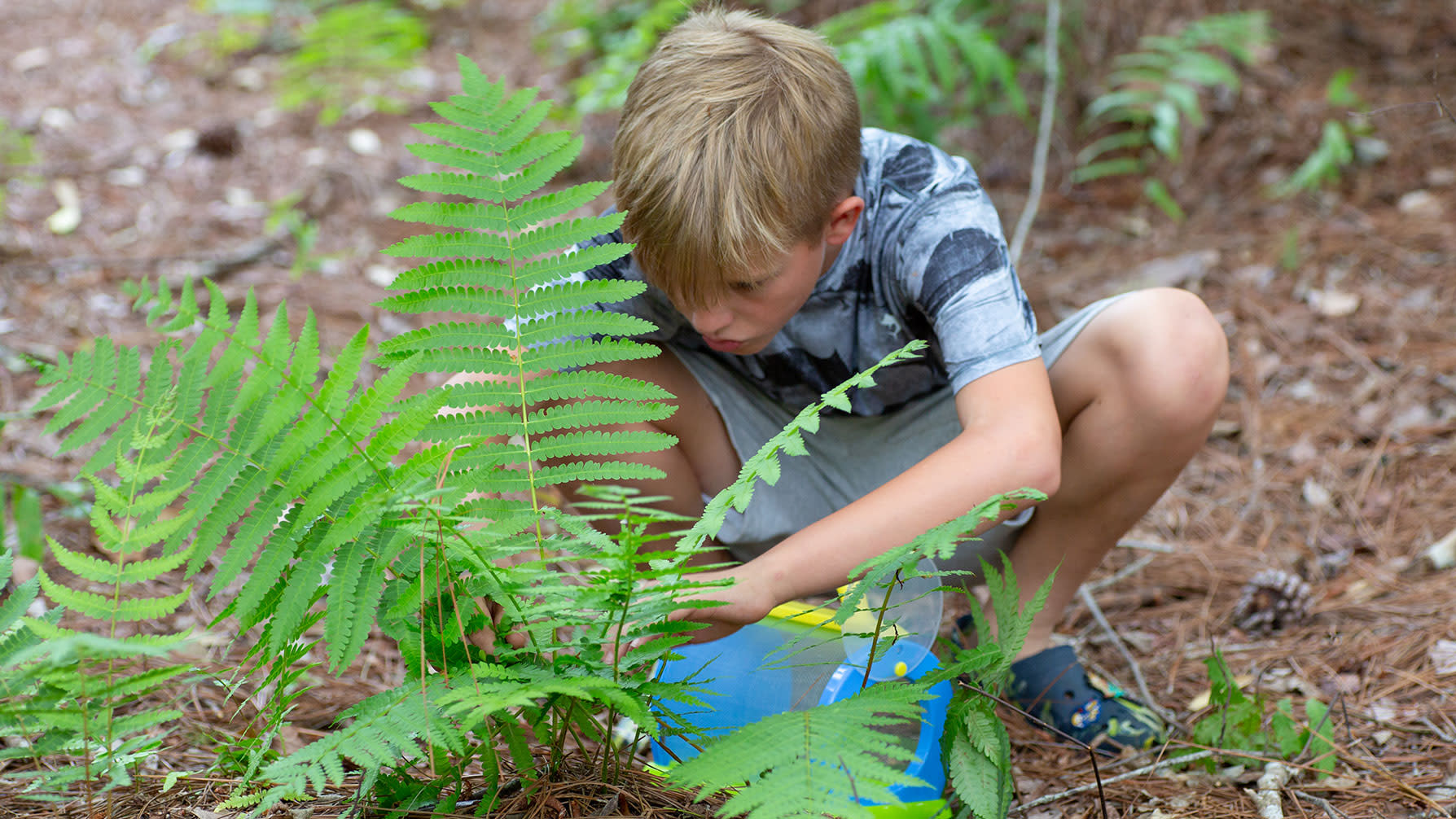
Camping With Kids Hacks
Having a few tricks up your parental sleeves while camping will not only make you feel like a boss but also help save you some hassle.
Prep your meals at home before you go. While it sounds enchanting to fully cook all your camping meals over an open flame, if you’ve got kids in your crew, it could be a serious challenge to achieve this Zen-like meal experience. Prep as much food as you can before leaving, including precooking things like beans, grains, breakfasts, etc. Leave only straightforward items to cook on-site, like grilled proteins or fresh eggs.
Bring mats to place outside of tents or RVs. Camping creates a lot of dirty shoes and feet. Save yourself the stress of constantly shaking out blankets or sweeping the tent floors by simply putting out mats in front of your tents. You can pull the mats from your car for an easy hack or purchase camping-specific ones.
Plush sleeping mats instead of air mattresses. If you’ve ever slept on an air mattress, you know they can often be unreliable. Look for plush sleeping mats that won’t deflate and will take up less space as a much more dependable option. It’s also wise to do a trial run on your living room floor with whatever option you choose so everyone in the family knows what to expect.
Light-up safety gear for kids. Light-up bracelets, vests or belts are the perfect “flashlight” for little kids. It helps light their way hands-free (and drop-free) and is also a quick way for parents to identify exactly where their kiddos are in the dark.
With this helpful camping checklist and tips for success, you can feel a little more confident about taking your family into the great outdoors. So pack your gear, sense of humor, and lots of grace, and go have a great time with your family. Don’t forget that coffee maker!

